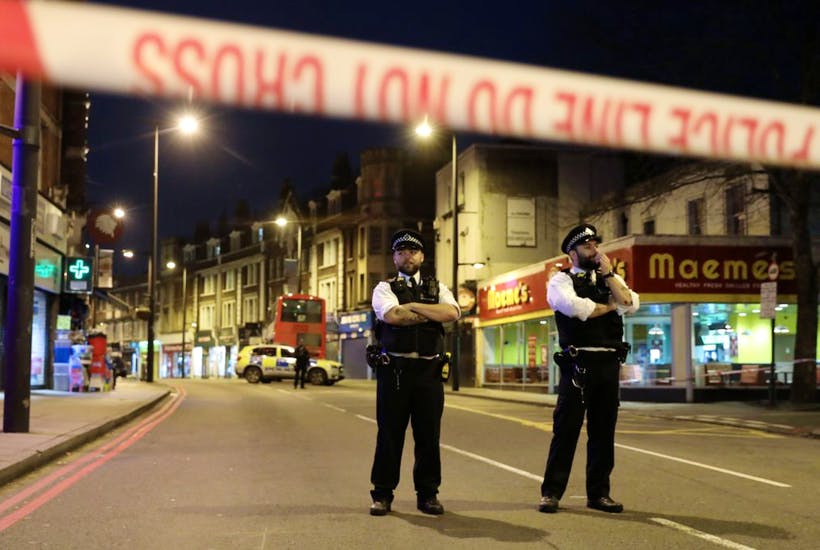Next week, the government will introduce emergency legislation to stop anyone convicted of terrorist offences from being automatically released half-way through their sentence. But, as Whitehall sources acknowledge, this only tackles one vulnerability in the system. So, as I write in The Sun today, a broader plan to deal with the jihadi threat is being drawn up.
One idea under discussion is for a sex offenders’ register for terrorists. This would enable the state to place restrictions on terrorists long after they have completed any prison sentence. These restrictions could include who they are allowed to meet with, where they are allowed to travel to both at home and abroad and a requirement to show the police their phones, laptops and internet and social media use.
But as the Streatham attacker showed on Sunday, even strict restrictions cannot stop someone from attempting to kill random members of the public. Despite being under surveillance by a team of armed officers, Sudesh Amman still managed to stab two people before he was shot dead.
I understand that for those who are too dangerous to be released even with restrictions there is a plan for them to have to positively fulfil certain conditions before they can be let out. Put simply, they would have to persuade either a judge or a parole panel that they were no longer a danger to the public before they could be freed.
Such changes would almost certainly be challenged on human rights’ ground. It would be argued that it is unreasonable to either place restrictions on people once they have served their time in jail or to require them to show that they have been ‘deradicalized’ before they can be freed.
But the first duty of government is to protect its citizens. It would be folly if people continue to be released onto the streets who the government knows are a danger to the rest of us.
I understand that, if necessary, the government would be prepared to derogate from parts of the European Convention of Human Rights so it can introduce such changes. This should be possible given that France did exactly that after the Paris terrorist attacks in November 2015.
As I say in the magazine this week, we face a changed terrorist threat. Today’s terrorists go from radicalisation to action far faster than they did even a decade ago. They are more interested in killing people as quickly as possible than in launching ‘spectacular’ attacks. To combat this, the law needs to change.







Comments